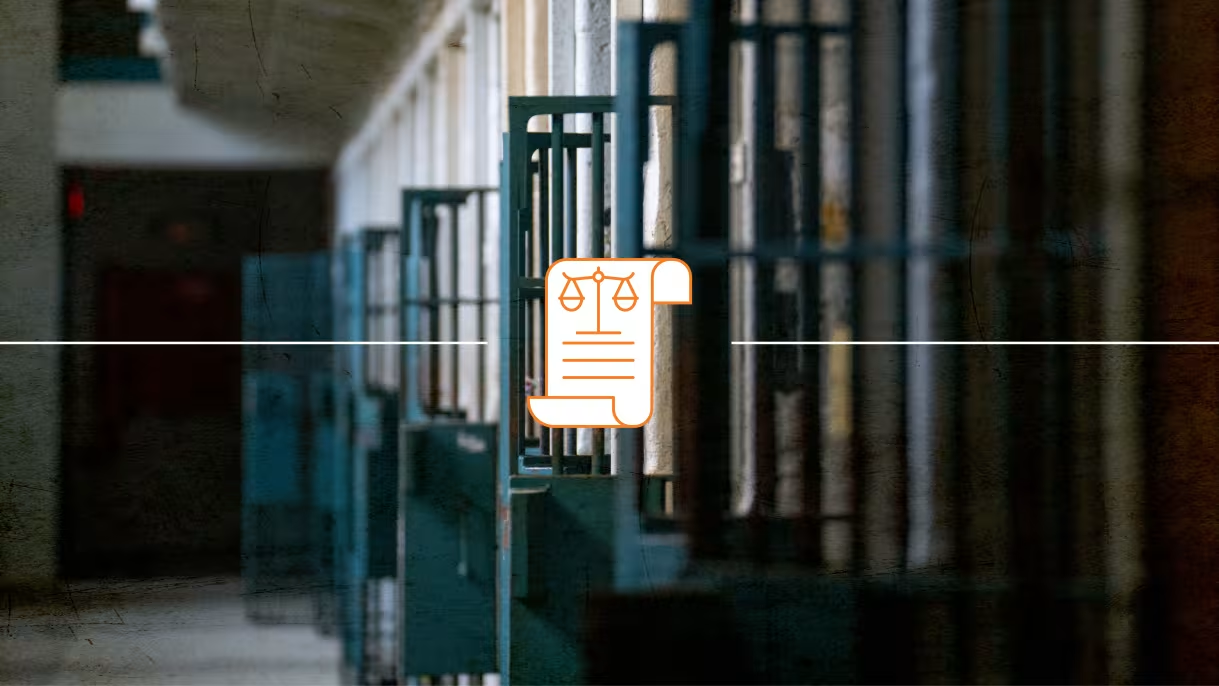

Princeton Policy Advocacy Clinic Students Release Analysis of Federal Crack-Powder Cocaine Sentencing Disparities, Draw Bipartisan Praise
In a country that strives for equal justice under the law, the federal statute that governs sentencing for cocaine offenses is especially eye-opening: The sentence for 28 grams of crack cocaine is the same as that for 500 grams of powder cocaine. The 18-to-1 sentencing disparity is despite there being no significant pharmacological differences between the drugs.
The corollary numbers are equally striking.
- From 2015 to 2023, Black people made up on average 80% of convictions for crack cocaine, while white and Latino people made up on average 6% and 13%, respectively.
- The large majority of people convicted and sentenced for crack cocaine offenses had no college education; 46% had a high school degree or equivalent, and 40% had less than a high school degree. Only 15% had at least some college.
- 97% of crack cocaine sentencing resulted from a plea deal, with only 3% resulting from a trial.
- Once convicted, 94% of people faced prison time, with only 3% to 6% receiving an alternative to incarceration, such as probation.
- The vast majority of people convicted for crack trafficking – more than 92% -- did not hold a supervisory or leadership role.
- Federal law is an outlier, as 41 states have no crack-powder cocaine sentencing disparities, and of the remaining nine states, seven have lower disparities than that at the federal level.
The data come from a nonpartisan policy brief written by undergraduate students as part of the Princeton School of Public and International Affairs’ Policy Advocacy Clinic, analyzing the potential impacts of passage of the Eliminating a Quantifiably Unjust Application of the Law (EQUAL) Act. First introduced in 2021 and then re-introduced in 2023, both times with strong bipartisan support, the EQUAL Act would eliminate the 18-to-1 federal sentencing disparity between crack cocaine and powder cocaine offenses and authorize the resentencing of people previously convicted of crack offenses.
In their policy brief, Emilie Chau ’25, Nate Howard ’25, and Jennifer Melo ’25 present a history of the sentencing disparity, aggregate data on federal convictions and incarceration for cocaine offenses, and analyze demographic information of those convicted.
They also share a projection by the U.S. Sentencing Commission that passage of the EQUAL Act would reduce the average sentence of newly convicted people by 31 months and cut the average sentence of nearly all of the 7,800 people eligible by more than 6 years.
“For decades, the sentencing disparity between crack and powder cocaine has fueled mass incarceration, devastated lives, and broken communities across the country,” said North Dakota Governor Kelly Armstrong (R), who co-sponsored the House bill as a member of Congress. “I am proud of Emilie, Nate, and Jennifer for their dedication to this project and their thorough analysis.”
The Anti-Drug Abuse Act of 1986 established the 100-to-1 sentencing disparity between crack and powder cocaine. The Fair Sentencing Act of 2010 increased the drug quantity thresholds of crack cocaine for sentencing, creating the 18-to-1 disparity, and the First Step Act of 2018 applied retroactively those increased thresholds for crack cocaine.
“The EQUAL Act is a bipartisan bill that would finally recognize what the science shows – there is no difference between crack cocaine and powder cocaine and no justification for harsher sentences for crack cocaine,” said Sen. Cory Booker (D-NJ), who co-sponsored the bill’s Senate version. “Our justice system must treat people fairly, regardless of which form of a drug is used. I applaud the students at Princeton’s Policy Advocacy Clinic for their hard work analyzing the impact this legislation would have if passed. Their research further advances our mission to eliminate racial inequities in our criminal justice system so all people are treated equally under the law.”
Founded by Udi Ofer, the John L. Weinberg Visiting Professor and Lecturer of Public and International Affairs, the Policy Advocacy Clinic is a highly intensive, first-of-its kind, yearlong course that immerses undergraduates in the policymaking process at the state, national, and international levels. In the fall, they study policy theory and analysis, legislative processes, campaign planning, and constitutional principles. During the spring semester, they apply these learnings in real-world policy advocacy campaigns. Clinic students do not engage in lobbying, and neither the Princeton Policy Advocacy Clinic nor Princeton University has taken a position on passage of the EQUAL Act.
“It was my honor to meet with the students and Professor Ofer as they constructed their project,” Armstrong said. “I am looking forward to hearing how the community reacts to their recommendations as we all strive to take steps toward applying equal justice under the law.”

